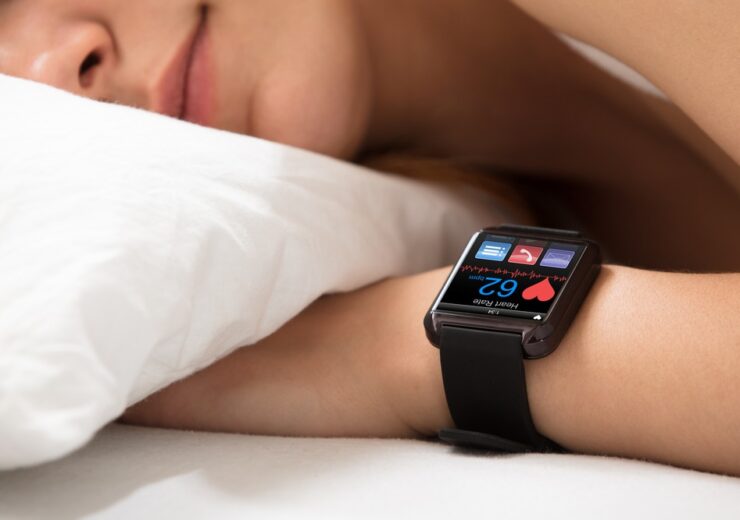In a survey commissioned by Itamar Medical, 24% of respondents were not aware of the existence of at-home monitoring solutions for sleep apnoea

Commercially available, wearable sleep trackers have become increasingly popular over the past decade (Credit: Andrey_Popov/Shutterstock)
The majority of people who use wearable, at-home sleep monitoring devices do not consider them to be legitimate healthcare solutions, a survey has found.
One third of the respondents to a survey commissioned by Israeli medtech firm Itamar Medical said they have used a wearable device or smartphone app to monitor their sleep – and just 41% of these users reported seeking medical evaluation or treatment following the results.
The survey, which was carried out in November 2020 to assess people’s understanding of sleep apnoea, also found that 24% of respondents were not aware of the existence of home sleep apnoea testing (HSAT) options like smart watches.
Gilad Glick, CEO of Itamar Medical, said: “While unfortunately not all that surprising, the results of the survey exemplify the need to educate, and spread awareness of the serious and life-threatening implications of undiagnosed sleep apnoea.
“At Itamar Medical, we are dedicated to bringing about this awareness and providing home-based, easy-to-use, eligible for reimbursement, and non-invasive solutions to address it.
“An alarming 51% of people still indicate that they would not take a sleep test or seek help for a sleep disorder.
“We need to address this issue and educate people that there are safe and viable solutions that can be conducted in the comfort of one’s home.”
Awareness of sleep apnoea and at-home monitoring solutions
While sleep apnoea is a serious health disorder that can increase the risk of diabetes, stroke and cardiovascular disease (CVD) if left untreated, many of the millions of Americans who suffer from it remain undiagnosed and untreated due to a lack of awareness around the disease.
This was reflected to an extent in Itamar Medical’s survey, with 33% of respondents stating they were unaware the health risks associated with CVD, diabetes and stroke could be significantly reduced through treating sleep apnoea.
One quarter of all the respondents also stated that they were either unaware that snoring – often associated with OSA (obstructive sleep apnoea) when presenting alongside other symptoms – could be a sign of a more serious health issue, or did not believe it to be true.
Regarding at-home sleep monitoring, 56% of respondents to the survey said that, if required to or prescribed one, they would choose a home-based solution rather than an in-lab test.
However, 23% of all respondents suggested they would think twice before seeking medical help for a sleep problem, and 28% stated outright that they would not seek medical care at all – with cost, inconvenience and fear of being infected with Covid-19 during the pandemic being the three main reasons people would not take a sleep test.
The survey was jointly carried out by Itamar Medical and Google Consumer Surveys, and involved more than 1,000 participants from the US between the ages of 18 and 65.
